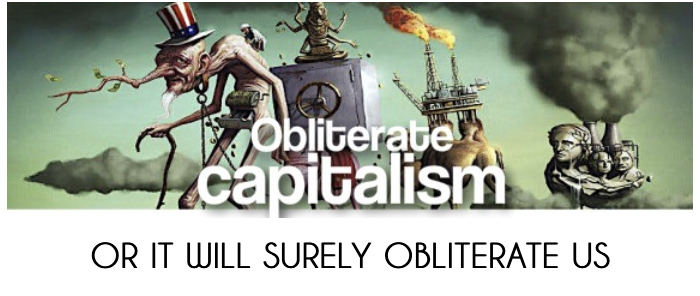The Need for a New US Foreign Policy

Highly recommended: Violence, Revolution, and Structural Change in Latin America (Revised and expanded)
First run on Apr.13, 2023
US foreign policy is based on an inherent contradiction and fatal flaw. The aim of US foreign policy is a US-dominated world, in which the US writes the global trade and financial rules, controls advanced technologies, maintains militarily supremacy, and dominates all potential competitors. Unless US foreign policy is changed to recognize the need for a multipolar world, it will lead to more wars, and possibly World War III.
The inherent contradiction in US foreign policy is that it conflicts with the UN Charter, which commits the US (and all other UN member states) to a global system based on UN institutions in which no single country dominates. The fatal flaw is that the US has just 4 percent of the world population, and lacks the economic, financial, military, and technological capacities, much less the ethical and legal claims, to dominate the other 96 percent.
At the end of World War II, the US was far ahead of the rest of the world in economic, technological, and military power. This is no longer the case, as many countries have built their economies and technological capacities.
 President Emmanuel Macron recently spoke the truth when he said that the European Union, though an ally of the US, does not want to be a vassal of the US. He was widely attacked in the US and Europe for uttering this statement because many mediocre politicians in Europe depend on US political support to stay in power.
President Emmanuel Macron recently spoke the truth when he said that the European Union, though an ally of the US, does not want to be a vassal of the US. He was widely attacked in the US and Europe for uttering this statement because many mediocre politicians in Europe depend on US political support to stay in power.
In 2015, US Ambassador Robert Blackwill, an important US foreign policy strategist, described US grand strategy with exceptional clarity. He wrote, “Since its founding, the United States has consistently pursued a grand strategy focused on acquiring and maintaining preeminent power over various rivals, first on the North American continent, then in the Western hemisphere, and finally globally,” and argued that “preserving U.S. primacy in the global system ought to remain the central objective of U.S. grand strategy in the twenty-first century.”
To sustain US primacy vis-à-vis China, Blackwill laid out a game plan that President Joe Biden is following. Among other measures, Blackwill called on the US to create “new preferential trading arrangements among U.S. friends and allies to increase their mutual gains through instruments that consciously exclude China,” “a technology-control regime” to block China’s strategic capabilities, a build-up of “power-political capacities of U.S. friends and allies on China’s periphery,” and strengthened U.S. military forces along the Asian rimlands despite any Chinese opposition.
Most US politicians and many in Britain, the EU, Japan, Korea, Australia, and New Zealand support the United States’ aggressive approach. I do not. I view the US approach to China as contrary to the UN Charter and peace.
China has the right to prosperity and national security, free from US provocations around its borders. China’s remarkable economic accomplishments since the late 1970s are wonderful for both China and the world.
During the long century from 1839 to 1949, China was driven into extreme poverty in a period marked by European and Japanese invasions of China and Chinese civil wars. Britain invaded in 1839 to force China to buy Britain’s addictive opium. Other powers piled on during the following century. China has finally recovered from that disastrous period, and in the process, ended poverty of around 1 billion people!
China’s new prosperity can be both peaceful and productive for the world. China’s successful technologies – ranging from vital cures for malaria to low-cost solar power and efficient 5G networks – can be a boon for the world. China will only be a threat to the extent that the US makes China into an enemy. US hostility to China, which mixes the arrogant US aim of dominance with long-standing anti-Chinese racism dating back to the 19th century, is creating that enemy.
The dangers of US foreign policy extend beyond China. The US goal to expand NATO to Ukraine and Georgia, thereby surrounding Russia in the Black Sea, helped stoke the Ukraine War. Countless nations see the danger of this approach. Major nations from Brazil to India and beyond aim for a multipolar world. All UN member states should recommit to the UN Charter and oppose claims of dominance by any nation.
ADDENDUM
Jeffrey Sachs on China's "Historic" Push for Multipolar World to End U.S. Domination
China is taking an increasingly assertive role in world affairs, helping to broker a restoration of relations between Iran and Saudi Arabia, offering a 12-point peace plan for Ukraine, and strengthening its relationships with European and Latin American powers. Last week, China continued its diplomatic outreach by offering to hold talks between Israel and Palestine. "China doesn't want the United States to be the preeminent power. It wants to live alongside the United States," says economist Jeffrey Sachs, director of the Center for Sustainable Development at Columbia University and president of the U.N. Sustainable Development Solutions Network.
Print this article

Unfortunately, most people take this site for granted.
DONATIONS HAVE ALMOST DRIED UP...
PLEASE send what you can today!
JUST USE THE BUTTON BELOW

[premium_newsticker id=”211406″]
![]() This work is licensed under a Creative Commons Attribution-NonCommercial 4.0 International License
This work is licensed under a Creative Commons Attribution-NonCommercial 4.0 International License
ALL CAPTIONS AND PULL QUOTES BY THE EDITORS NOT THE AUTHORS


